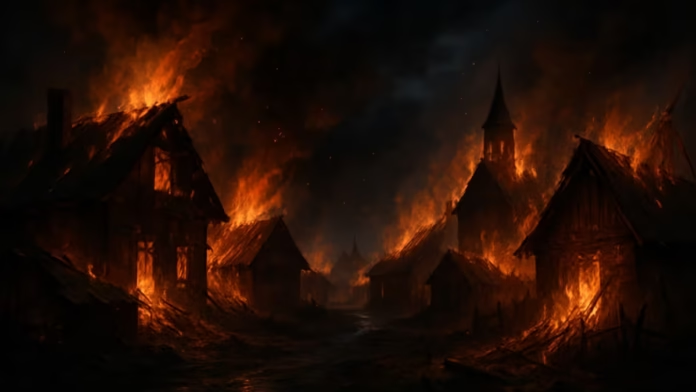On May 20, 2000, the small village of Bagber in Tripura descended into horror as ethnic tensions exploded into a night of violence. What followed was a massacre that displaced families, scarred communities, and left behind a legacy of trauma—yet today, this event barely finds a place in our collective memory.
Bagber 2000 ethnic violence stands as one of Tripura’s darkest episodes, yet it is often left out of national discourse. As the victims grow older and their stories fade, it becomes all the more vital to remember what happened that night—and why it must never happen again.
The Attack and Its Aftermath: A Community Torn Apart
The violence erupted suddenly and without mercy. Armed assailants stormed Bagber, targeting homes and individuals based on ethnic identity. At least 25 people were killed, including women and children, while many more fled the area in terror.
Entire families were displaced overnight. Survivors took refuge in relief camps with only the clothes on their backs, unsure if they’d ever return home. While some eventually rebuilt their lives, others still live with the pain of loss and unanswered questions.
To understand how communities recover from such trauma, visit our internal link on post-conflict rehabilitation in Northeast India.
Why Bagber 2000 Ethnic Violence Happened
The roots of the Bagber tragedy lie in Tripura’s complex demographic and political history. Over the decades, migration patterns, resource competition, and identity-based politics have fueled tensions between tribal communities and Bengali settlers.
In the late 1990s, these tensions escalated, with periodic clashes, militant threats, and growing distrust. On May 20, 2000, this fragile balance shattered—Bagber became a flashpoint for all the tensions simmering beneath the surface.
The government condemned the attack and promised action, but few arrests were made, and justice remained elusive.
You can also read our deep dive into ethnic conflicts across Northeast India.
A Forgotten Tragedy in the Shadow of Silence
Despite the scale and brutality of the event, Bagber 2000 has received little media coverage or academic attention. No formal memorial exists. There are no public remembrance ceremonies.
Why has this tragedy been allowed to fade from memory? Experts say part of the problem is the marginalization of the Northeast in national politics and news cycles. Further, events that would cause national outrage elsewhere are too often ignored when they occur in remote villages like Bagber.
We recently covered forgotten massacres in India’s Northeast, highlighting how selective memory fuels ongoing divisions.
Voices of the Survivors: Stories That Demand to Be Heard
For survivors, the pain is not just about what happened—but how quickly the world moved on. Many still live with post-traumatic stress, the loss of loved ones, and a deep sense of injustice.
One survivor recalled, “We lost everything in a night—our land, our people, our identity. But what hurts most is that no one remembers.”
Some community organizations have tried to collect oral histories and raise awareness, but without institutional support, their efforts remain limited.
The Urgent Need for Remembrance and Reconciliation
The Bagber 2000 ethnic violence is not just history—it is a warning. Ignoring such events allows wounds to fester and divisions to deepen.
Peace in Tripura depends on truth, reconciliation, and inclusion. The state must formally recognize the incident, offer support to survivors, and ensure that such violence is never repeated.
Educational institutions should teach the history of the region in its entirety, including uncomfortable truths. Civil society must also push for commemoration and justice.
A Call to Action: Never Forget Bagber
On this day, May 20, let us pause to remember the lives lost and the lessons ignored. The people of Bagber deserve justice. Also, their pain deserves recognition. And Tripura deserves peace.
Visit our Tripura human rights archive to learn more about similar incidents and ongoing efforts toward peacebuilding.
For policy updates and justice initiatives, follow Northeast India Watch.
Let us break the silence. Let us remember Bagber.


